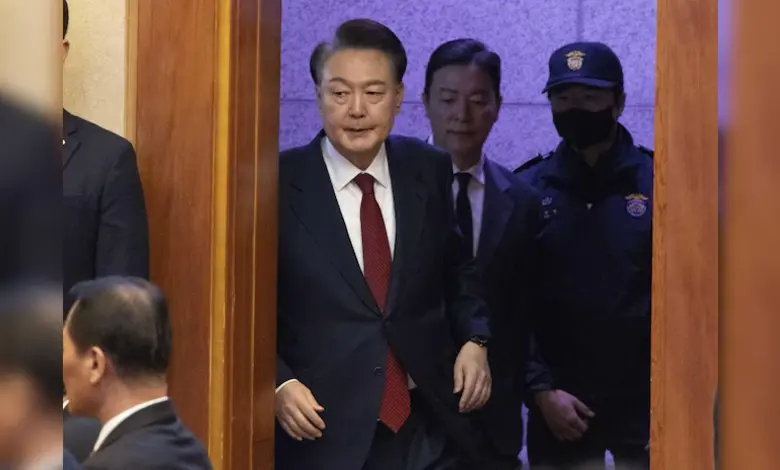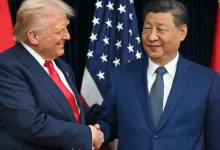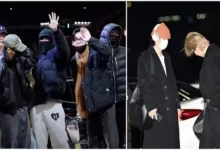South Korea’s Ex-President Faces Historic Trial for Rebellion

The unprecedented criminal trial of former South Korean President Yoon Suk Yeol began Monday, just days after his impeachment for declaring martial law. Charged with rebellion, Yoon faces severe penalties, including the possibility of life imprisonment or, in theory, the death penalty, following his controversial actions last December.
Yoon, a conservative leader, became South Korea’s first sitting president to face indictment after ordering troops onto Seoul’s streets to enforce martial law. The trial, expected to span two to three years, will determine the legal consequences of his brief but disruptive decree.
Will Yoon Face Conviction?
The Constitutional Court’s decision to uphold Yoon’s impeachment underscored the severity of his actions, stating they violated the constitution and eroded public trust. The court described the martial law declaration as a source of widespread disruption across society, politics, and the economy.
Legal expert Park SungBae, a specialist in criminal law, suggested that the court’s stance leaves little room for leniency, predicting a likely conviction on rebellion charges. The Seoul Central District Court is now examining whether Yoon’s imposition of martial law constituted a deliberate attempt to orchestrate rebellion, a charge that carries only two possible sentences: capital punishment or life imprisonment.
Yoon, who has denied the accusations since they were filed in January, appeared in court Monday, defending his actions as a non-violent effort to highlight what he called the “anti-state” liberal opposition’s misuse of its parliamentary majority to hinder his policies. “The rebellion charge, built on an event that lasted mere hours and ended peacefully after lawmakers demanded its reversal, lacks sound legal grounding,” Yoon told the court.
Some analysts have questioned the rebellion charge, noting the absence of significant violence or civilian harm during the episode.
What’s at Stake in the Trial?
The core question is whether Yoon’s deployment of hundreds of troops to the National Assembly and election commission offices was an unlawful bid to suppress these institutions. Although a president lacks the constitutional power to suspend the legislature, even under martial law, Yoon’s order explicitly halted all political activities at the National Assembly.
Yoon insists he had no intention of dismantling the legislature and was prepared to respect lawmakers’ vote to end martial law, which occurred hours after his decree. However, this claim conflicts with statements from some military officials, who allege Yoon instructed them to forcibly remove lawmakers to block a vote against his order.
Lawyer Yang Hong-seok explained that the court will evaluate whether Yoon aimed to disrupt the constitutional order, closely analyzing the specifics of military and police mobilization.
What Lies Ahead
Yoon’s removal has triggered a snap election on June 3 to select a new president for a full five-year term. Observers believe Yoon may still wield influence over his People Power Party’s choice of candidate, favoring someone who might pardon him if convicted.
Stripped of presidential immunity, Yoon could face additional charges, such as abuse of power, tied to his martial law decision. Park estimated the trial could last one to two years due to the volume of witnesses and evidence, while Yang predicted a verdict within a year given the case’s significance.
Should appeals arise, the case could escalate to a higher court and the Supreme Court, though Park noted these stages are unlikely to exceed a year combined.




